Incoterms 2025: Which Rules Should You Choose to Minimize Disputes?
Every year, countless companies face international disputes caused by contractual errors during export operations. Over 60% of these disputes stem from a poor understanding of the responsibilities between seller and buyer. The consequences are legal, operational, and financial. To mitigate these risks, the rigorous integration of Incoterm 2025 is an essential preventive measure. These rules clearly codify the division of obligations in terms of transport, risk transfer, customs formalities, and insurance coverage.
When poorly chosen or misapplied, Incoterms can lead to delays, unexpected costs, and complex disputes. But when used properly, they provide a secure, transparent framework for all stakeholders. That’s why it’s crucial to train teams, adapt commercial documentation, and rely on expert support to ensure compliance. Using Incoterm 2025 wisely is a powerful strategic lever for export performance.
Why Are Incoterms So Critical in 2025?
2025 is no ordinary year for exporters. Geopolitical tensions, increasingly complex global logistics, heightened customs scrutiny… This is not the time to treat international operations lightly.
In this context, choosing the right Incoterm 2025 isn’t a luxury—it’s a necessity. These rules, published by the ICC, clearly define who does what, who bears which risks, who handles formalities, and who pays for what. The 2025 version goes even further, refining key aspects like delivery location, mandatory insurance, and claims management.
Let’s take a concrete example: a French SME entering international markets can’t simply “go along with what the client suggests.” The choice of Incoterm 2025 must be a core part of the contract—otherwise, you risk eroded margins, customs delays, and unexpected disruptions.
Conversely, making the right choice helps you maintain control over your supply chain, clarify responsibilities, and optimize every step—from shipping costs to delivery times.
At TBI, we understand this reality well. That’s why Incoterm analysis is a core part of our support strategy. A solid contract starts with a well-chosen Incoterm.
The 3 Most Common Mistakes to Avoid with Incoterm 2025
1. EXW: Frequently Misunderstood… and Misused
On paper, EXW (Ex Works) seems straightforward: once the goods leave your premises, you’re no longer responsible. In practice? It’s rarely a good idea—especially if your buyer is abroad and unfamiliar with French customs procedures.
The result: missing documents, blocked shipments, and tax penalties. And in 2025, with the increasing digitalization of customs, mistakes will cost you dearly.
Our advice: unless your client is highly experienced and has strong local representation, avoid EXW. It’s not a shortcut—it’s a fast track to trouble.
2. Using FOB or CIF for Air Freight? No, No, and No.
A very common mistake: using FOB or CIF for air shipments. The issue? These Incoterms are strictly for traditional sea freight only (and even then, not for container shipping!).
When applied to air transport, they become void. And in case of dispute? You’ll face a legal dead end.
The ICC clearly states in Incoterm 2025: for air freight, use FCA, CPT, or CIP. These options are safer, clearer, and legally sound.
3. Accepting DDP Without Knowing the Risks
On paper, DDP (Delivered Duty Paid) sounds reassuring to the client: they don’t have to deal with anything—the seller handles it all. But for a French SME, it’s a real headache if you don’t fully understand the destination country’s tax rules.
Custom duties, VAT, declarations… One oversight can cost you a fortune. DDP is an Incoterm to be used with extreme caution—and never without consulting a freight forwarder or tax expert.
Which Incoterms Should You Use in 2025?
The right Incoterm 2025 depends on your export maturity level, internal capabilities, and knowledge of your target markets. Here are a few practical recommendations based on your profile:
1. New to Export? Go for CPT or CIP
No structured export department yet? Don’t worry. CPT or CIP let you retain control over the main transport while transferring risk to the buyer once goods are handed over to the first carrier.
With CIP, insurance is even mandatory—a major asset for securing your shipments. And with a partner like TBI, you get strong logistical support without getting lost in the details.
2. Experienced Exporter? Consider FCA
If you’re already well-versed in international trade, FCA (Free Carrier) is a flexible, efficient option. It works for all transport modes and offers a clear division of responsibilities.
As for DDP, as mentioned earlier, only choose it if you have rock-solid knowledge of local rules. Otherwise, it’s best to steer clear.
3. Importing Goods? DAP Is a Smart Choice
If you’re a French company importing from abroad—especially from Africa or the Middle East—DAP (Delivered At Place) is often the best compromise.
The seller handles transport to your site, but you manage customs clearance. This division of responsibilities allows a partner like TBI to optimize your delivery process and local compliance.
How to Integrate Incoterm 2025 into Your Export Contracts
Choosing the right Incoterm 2025 is one thing—properly integrating it into your contracts is another. There’s no room for ambiguity.
Always mention:
- the Incoterm type (e.g. CIP),
- the exact place of delivery (e.g. Lagos Airport),
- the official version (“Incoterms 2025”).
And include this in all your documents: pro forma invoice, purchase order, sales contract, shipping documents…
Why? Because a vague or missing clause can turn a simple misunderstanding into a legal dispute. And nobody wants that.
Also crucial: overall consistency. The mode of transport, destination, your internal resources… Everything must align with the chosen Incoterm. A regular audit of your documentation process is strongly recommended.
Finally—train your teams! Sales, customer service, logistics: everyone must speak the same language. A misunderstood Incoterm can throw the entire operation off track.
Lack of mastery of Incoterm 2025 is a major risk factor for any exporting company. Poor application can lead to logistics delays, unexpected costs, unclear responsibilities, and ultimately, damaged client relationships. Incoterm 2025 should not be seen as mere contractual clauses, but as strategic tools for managing international flows. They help secure operations, anticipate customs and tax obligations, and prevent misunderstandings between parties. Proper integration into contracts, quotes, purchase orders, and transport documents is essential for legal compliance.
A thorough analysis of Incoterm 2025, combined with an understanding of your internal logistics capabilities, offers a real opportunity for optimization. With the support of a specialized partner like TBI, these rules can become a long-term competitive advantage.
FAQs
1. What are the main updates in Incoterm 2025?
The rules now provide more clarity on safety, insurance, and traceability. Grey areas—especially regarding the role of freight forwarders—have been addressed. A new Incoterm for e-commerce might also be introduced (stay tuned…).
2. Which Incoterm is best for an SME starting international trade?
CPT or CIP are ideal for maintaining control over the main transport while minimizing risk. With a partner like TBI, you’re guided every step of the way.
3. Can FOB or CIF be used for air shipments?
No—never. These are for sea freight only. For air transport, use FCA or CIP instead.
4. Who decides which Incoterm to use in a transaction?
It’s a negotiation between the seller and buyer. What matters is that the decision is clearly made, discussed, and properly written in the contract.
5. What are the risks of choosing the wrong Incoterm?
Delays at customs, unexpected fees, and legal disputes.
At TBI, we anticipate all of this by analyzing your Incoterms from the quotation stage.

